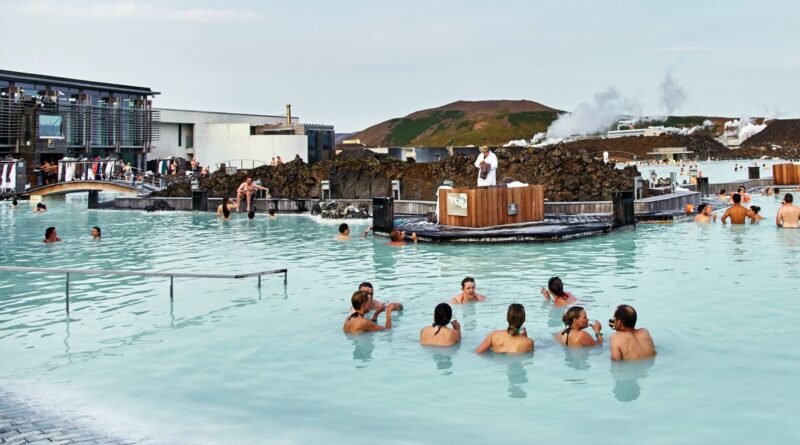Travel to Europe is really hot, but some seek cooler destinations
Demand is heating up for summer travel to cooler destinations in Europe, tour operators say, as travelers look to escape the scorching temperatures forecasted to make the Continent’s most popular regions noticeably warmer this year.
Data from the Copernicus Climate Change Service found a probability of more than 60% that temperatures across much of Southern and Western Europe, including Spain, France and Italy, will reach above-average levels in June, July and August.
Such projections are helping push bookings for Europe’s cooler destinations during 2023’s peak summer travel months, from June through August.
Iceland, Scandinavia, Ireland and the U.K. are the most in-demand destinations suppliers say travelers are booking to beat the summer heat.
EF Go Ahead Tours said bookings to the U.K. and Ireland are up 50% this August compared with last August and up 200% compared with August 2019. Summer bookings for Scandinavia are also up 50% compared with summer 2019.
“We’ve seen tremendous booking growth [for Scandinavia, U.K. and Ireland], especially in the last few months as people look for cooler climates,” said Heidi Durflinger, president of EF Go Ahead Tours. “People are eager to get back out traveling and looking to escape the heat in the summer months.”
While Iceland is typically a popular destination for Intrepid, the company said sales are up 136% through May compared with the same period in 2019. Sales to Scandinavia are up 62% this year from 2019.
“Iceland has been booming since before the pandemic, and so the growth isn’t as dramatic, but in Scandinavia, the growth is huge this year in particular, as is Scotland,” said Tom Smith, vice president of sales and marketing of North America for Intrepid.
Kensington Tours also reports strong sales to Scandinavia, particularly Norway and Finland, for summer travel.
Finland sales are up 71% while Norway’s have increased by 45%. The company is also seeing more interest in Denmark and strong sales in the Netherlands and Eastern Europe, including Poland, Czech Republic and Hungary.
“The increased demand for traditionally popular destinations in Europe such as Italy and the south of France have made it more crowded and more expensive,” said Helen Giontsis, president of Kensington Tours. “As travelers look for alternatives, they are discovering other countries and regions that offer great art, culture, food and wine, including the Scandinavian countries that also offer the benefit of cooler temperatures.”
Strategies for staying cool
Tour operators aren’t the only ones noting the preference for cooler climes this summer.
A Mastercard travel trends report published in May said that weather patterns have prompted subtle changes in where people spend their summers and that extreme heat waves and risks of wildfires in Southern Europe are driving travelers to the northern parts of the Continent, including to the U.K., Scandinavia, the Netherlands, Switzerland and Germany.
Cooler destinations outside of Europe are also growing in popularity, suppliers say, with Southern Africa, Australia and New Zealand, all countries or regions in the Southern Hemisphere, seeing an uptick in bookings this summer during their winters.
EF said that Southern Africa and safaris are up almost 200% this summer, and Australia and New Zealand are seeing more than double (plus 120%) the travelers compared with summer 2019.
Japan and Southeast Asia are also in high demand. EF has seen a 200%-plus increase in bookings to Japan since summer 2019, and both Japan and Thailand have been up over 100% in the past six months for the summers of 2024 and 2025 compared with last year.
“The Japanese Alps tend to be cooler, especially in June or July,” said EF’s Durflinger. “Thailand’s hottest months are April and May, so by late June/July the wet season starts, which means temperatures break. While there may be increased showers, it’s a great time to visit, with less crowds and cooler temperatures.”
Travelers are also looking to beat the heat by traveling during the shoulder season and offseason months, which offer both a cooler vacation and one that’s less crowded and potentially cheaper.
“A lot of our customers are not constrained by having to travel during school holidays, and so we’re seeing that May, June, September and October are far busier than July and August,” said Intrepid’s Smith. “With Southern Europe becoming hotter, we are seeing customers who can travel outside of the peak hot months doing so or traveling to other areas of Europe.”
Plenty of people still have their sights set on always-popular European destinations of Italy, France, Spain and Portugal for July and August.
“We’re somewhere close to 80% capacity and still seeing demand coming in for the summer months,” said Durflinger, adding that some tours are already sold out for June and July.
While Durflinger said EF’s experienced local tour guides know how to keep guests cool on tours — visiting museums, finding shaded areas to discuss sites and attractions or taking breaks in air conditioned cafes — she suggested that the best way to stay cool as temperatures continue to climb each year is to travel in the offseason.
“To me, Italy in February, March is the best time to go,” she said. “You’re outdoors with the sun shining and don’t need a jacket. [Plus], it’s less expensive to travel during the offseason.”
Source: Read Full Article



